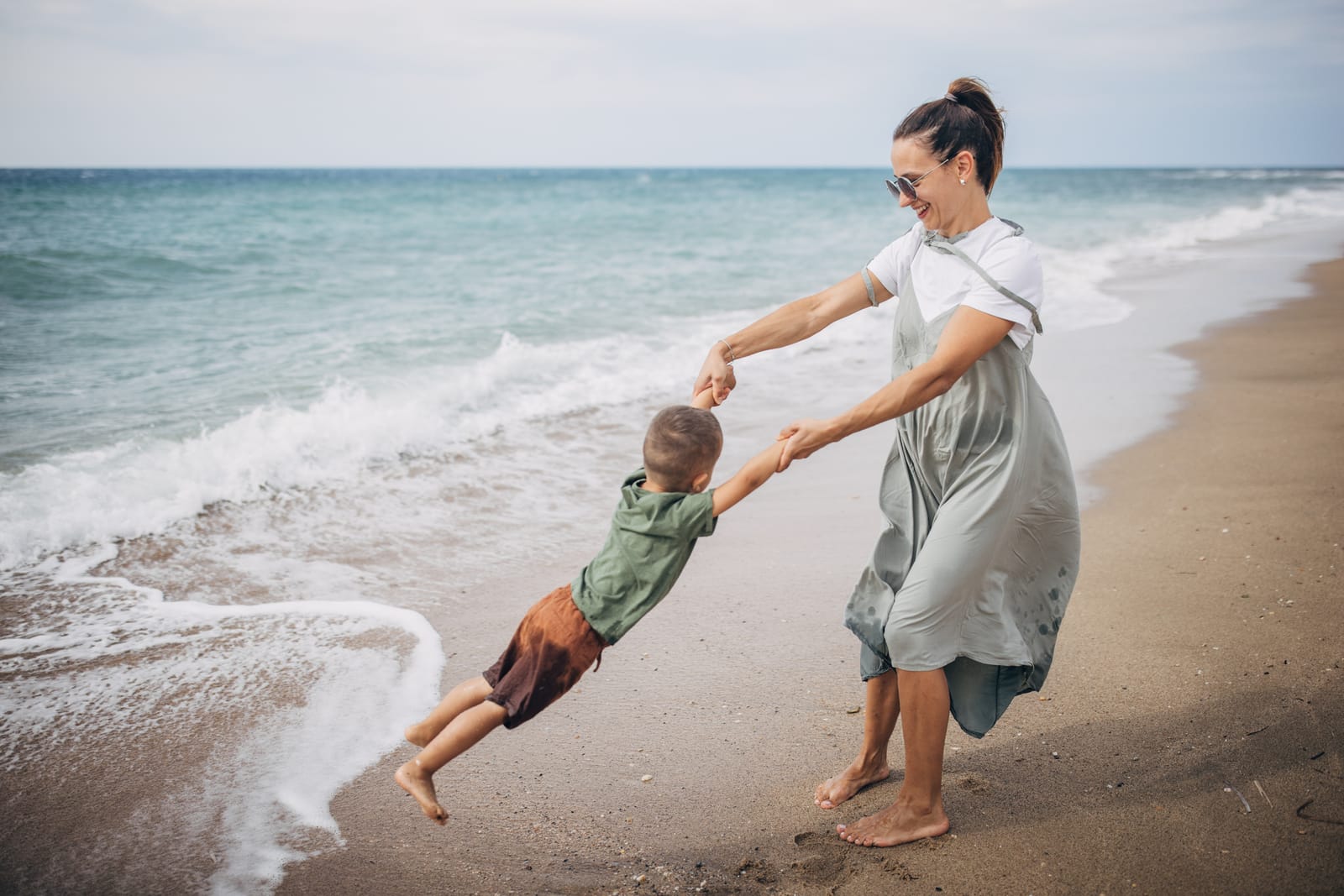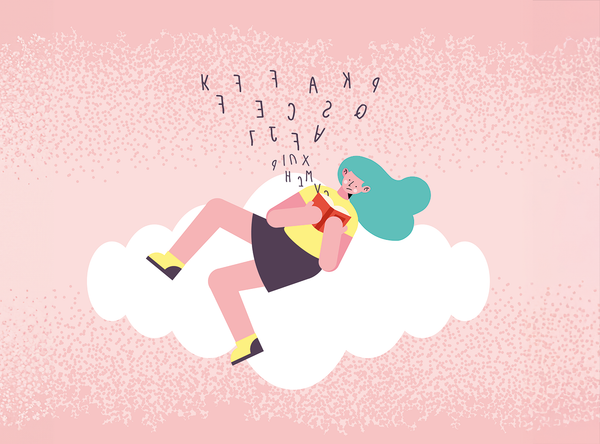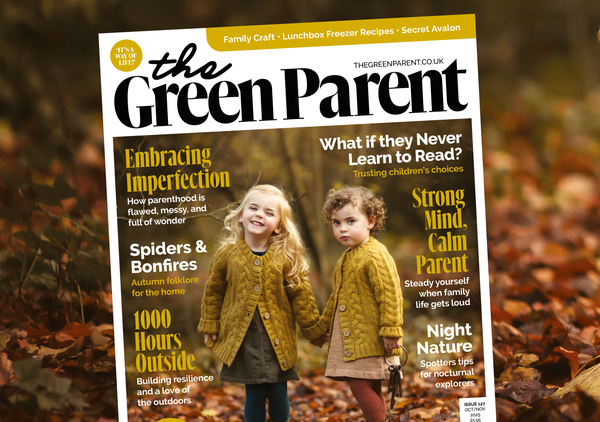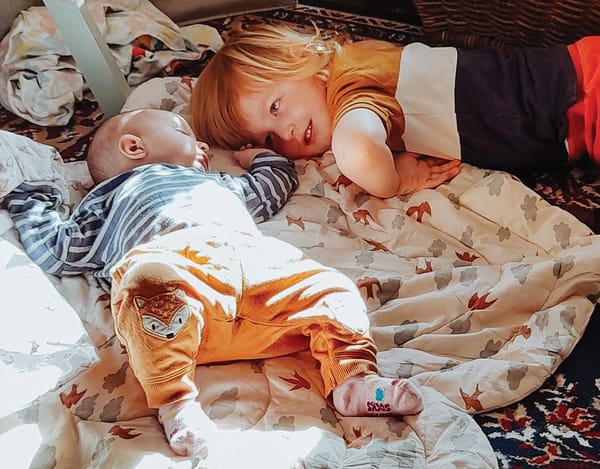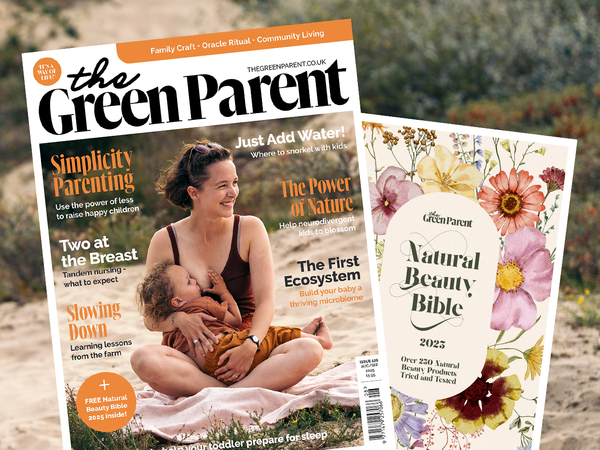I remember sobbing when our eldest son was a few weeks old, imagining the day that I would breastfeed him for the last time, says Emma Foley
It seemed impossible that he wouldn’t always need that sustenance from me, and that this co-dependence between us would ever end.
Hormones, anxiety and sheer sleep deprivation played a huge role, but the anticipatory grief of that moment was very real for a long time.
A few months ago, I fed our youngest son for the final time – at four and a half, he self-weaned. A monumental journey came to an end that day, but it was almost a non-event. He was ready, I was ready – it happened naturally, on our own terms, with no fanfare.
All I felt was gratitude for having been able to feed them both for as long as they wanted, and excitement at perhaps reclaiming my body in some way. This would have been unthinkable to me six years earlier, as I grappled with brand-new motherhood.
Life – both externally and internally - had changed so profoundly between these two scenarios. As a first-time mum, I couldn’t fathom that the intensity of the newborn phase would ever end. I couldn’t yet account for the endless ways in which both mother and baby would change and grow, in ways big and small.
Constant Change
As a Buddhist, I reflect often on the teaching that all conditioned things are impermanent. Even things that are seemingly timeless – mountains, the ocean, the land– are in a state of constant change.
Witnessing our sons’ growth has given real insight into this truth, matched only by the death of my dad. Without a doubt, impermanence is most evident at the beginning and end of our lives. Both have elements of pain and beauty.
All things within nature wax and wane, are born and die, are subject to seasons – as humans we are no exception. Parenting young children is just one season of many in our lives, and within that are countless phases of varying intensity, each with their own joys and difficulties.
Meet Them Where They Are
You don’t have to be a Buddhist to notice that children are constantly growing and changing, along with their needs and your relationship with them. For me, reflection on this brings perspective during moments of potential overwhelm. It gives me a better chance of being the mum I want to be – respectful and gentle - and less chance of losing my temper when yet another cup of water gets spilled (or was it poured?) all over the bed.
Everything is a phase – it’s trite, but it’s true. And keeping in mind the rate at which your child is growing and changing, whilst meeting them where they are, can make whatever you’re tackling seem that little bit easier.
You have to deal with the child in front of you- and that child will be different in a few months. Thinking this way has helped us to pick our battles, and really lean into meeting their needs.
Our sons are gradually transitioning to falling asleep without us in the room, and that feels ok. Even six months ago, they weren’t ready, and we’d have caused stress and upset by rushing this next step, rather than just enjoying the cuddles while they lasted. This spacious approach has taken away so much pressure, and our boys are secure and self-assured.
A Bittersweet Truth
I know that I’ll miss having young children in the house - I already feel a pang when I think about our sons as froggy-legged, velvet-headed newborns. I also know that I struggled hugely with sleep deprivation and anxiety in the newborn days, and that life is easier now. Multiple truths can co-exist, and we can hold and honour those things simultaneously.
This broader perspective can also be a catalyst for full acceptance of things as they actually are. Whether that’s idyllic and beautiful, or messy and stressful (or all of these, all before breakfast) – there’s untold power in accepting where you are right now.
This moment won’t come again. For some moments, you’ll be glad that’s the case – and that’s ok. ‘They’re not little for long’ shouldn’t become a stick to beat yourself up with. In decades to come I might look back wistfully at entire plates of spaghetti being thrown on the floor – but I’m not there yet.
Empowerment In Change
Just like our children, we are constantly changing – in fact, we are nothing but change. This can be hugely empowering - nothing about us is truly permanent, even as adults. These changes arguably slow down beyond childhood, but think back to you at eighteen – which aspects of your personality are still the same, and which have shifted? I’m a completely different person, and I’ll be more different still as I grow older.
For me, seeing life as a process in this way takes some of the pressure out of raising children. The way we are now will affect our children for the rest of their lives, hence the need to parent consciously. But vitally, there isn’t some pinnacle of adulthood that childhood is rigorous training for. Your child is as much ‘themselves’ at two, or six, or twelve, as they will be in any of their adult years – they will continue to grow and change, as will we.
Childhood is a part of life - a transient and magical one. Embracing its unique wonder, as opposed to seeing it as a bootcamp to prepare for adulthood, frees up space for joy.
On Letting Go
‘Don’t worry too far in advance’ is a lesson I’m continuing to learn, and one that I try and pass to our sons. I know that they won’t want to live with us forever, but at this moment in time that’s unfathomable to them – they’re fully confident that they never want to leave. I remember feeling the same as a child, and I reassure them that they’ll always be welcome, but that they’ll feel differently as they get older.
In the meantime, letting go happens in tiny increments. Sometimes these tiny changes – the ones you don’t brace yourself for – can catch you off guard. The thinning out of pudgy little screw-on wrists, or donating a forgotten toy they were obsessed with as a toddler – there’s no shame in sentimentality. Even them ‘sleeping through’, which I’d desperately wanted for five years, seemed like a little loss, somehow. The emotions that come with these transitions, even when they seem irrational, are testament to the raw love we have for our children.
In their own way, and in their own time, they will continue to change and grow in ways as yet unknown. The sheer need of early childhood will dissipate, and the cord between our hearts will endure yet lengthen as they eventually head out into the world as their own, ever-changing people. And what could be more beautiful?
Emma Foley lives in the North of England with her husband and two young sons. She writes, answers a switchboard and volunteers at her local Buddhist Centre. As well as being featured in literary and parenting magazines, Emma has written a children's picture book and is actively seeking representation.


